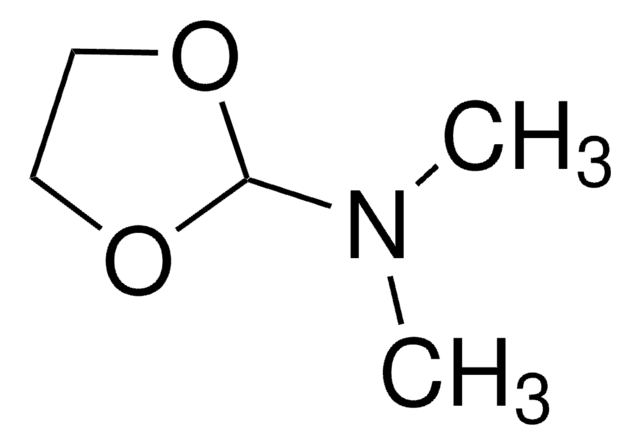M2933
MES hydrate
BioPerformance Certified, suitable for cell culture, ≥99.5%
Synonym(s):
2-Morpholineethanesulfonic acid hydrate, 2-(N-Morpholino)ethanesulfonic acid hydrate, 4-Morpholineethanesulfonic acid
About This Item
Quality Level
grade
BioPerformance Certified
for molecular biology
Assay
≥99.5%
form
crystalline powder
storage condition
dry at room temperature
technique(s)
cell culture | mammalian: suitable
immunofluorescence: suitable
nucleic acid detection: suitable
impurities
endotoxin and Total Aerobic Microbial Count, tested
color
white
useful pH range
5.5-6.7
pKa
6.1
solubility
water: 335.3 g/L at 20 °C
suitability
suitable for component for culture media
suitable for molecular biology
application(s)
agriculture
diagnostic assay manufacturing
life science and biopharma
sample preparation
foreign activity
DNase, RNase, protease, none detected
SMILES string
O.OS(=O)(=O)CCN1CCOCC1
InChI
1S/C6H13NO4S.H2O/c8-12(9,10)6-3-7-1-4-11-5-2-7;/h1-6H2,(H,8,9,10);1H2
InChI key
MIIIXQJBDGSIKL-UHFFFAOYSA-N
Looking for similar products? Visit Product Comparison Guide
General description
Beyond these applications, MES hydrate buffer is widely used in regulating pH in plant culture media, reagent solutions, and physiological experiments. It′s the preferred choice for studying the effects of pH on enzymatic reactions and investigating the interactions of proteins and other biomolecules with metal ions. As a Good′s buffer, MES hydrate meets stringent criteria of having a midrange pKa, maximum water solubility, minimal solubility in other solvents, minimal salt effects, stability across different temperatures, chemical and enzymatic stability, minimal absorption in the visible and UV spectral range, and ease of synthesis. Furthermore, it does not form complexes with most metal ions, ensuring reliable outcomes in applications involving metal ions.
Application
- To suspend cells before autophagic induction studies
- In the preparation of Murashige and Skoog growth medium for the growth of Arabidopsis thaliana seedlings
- In the conjugation of hybridization probes to beads before PCR amplification
- To treat fibroblast-derived matrix before conjugation with heparin for use as a vascular endothelial growth factor delivery platform
- as a wash buffer in a study about molecular biology
- as a component of culture media
Features and Benefits
- Suitable for Molecular Biology and Cell Culture
- Can be used as a Buffer component, for Electrophoresis and Protein separation
- Tested for Endotoxins and Total Aerobic Microbial Count
- Free from DNase, NICKase, RNase, and Protease
- Tested to confirm low levels of heavy metal contamination, ensuring suitability for various applications
- Effective Buffering from pH 5.5-6.7 (25 °C) with a pKa of 6.1 (25 °C)
- Highly soluble in water
- Minimal metal ion binding
- Less toxic to cells than other buffers such as Tris and phosphate
- Stable in a wide pH range
- Low UV absorptivity
- Minimal reactivity
Preparation Note
Storage and Stability
Other Notes
Storage Class Code
11 - Combustible Solids
WGK
WGK 1
Flash Point(F)
Not applicable
Flash Point(C)
Not applicable
Personal Protective Equipment
Certificates of Analysis (COA)
Search for Certificates of Analysis (COA) by entering the products Lot/Batch Number. Lot and Batch Numbers can be found on a product’s label following the words ‘Lot’ or ‘Batch’.
Already Own This Product?
Find documentation for the products that you have recently purchased in the Document Library.
Customers Also Viewed
Our team of scientists has experience in all areas of research including Life Science, Material Science, Chemical Synthesis, Chromatography, Analytical and many others.
Contact Technical Service


